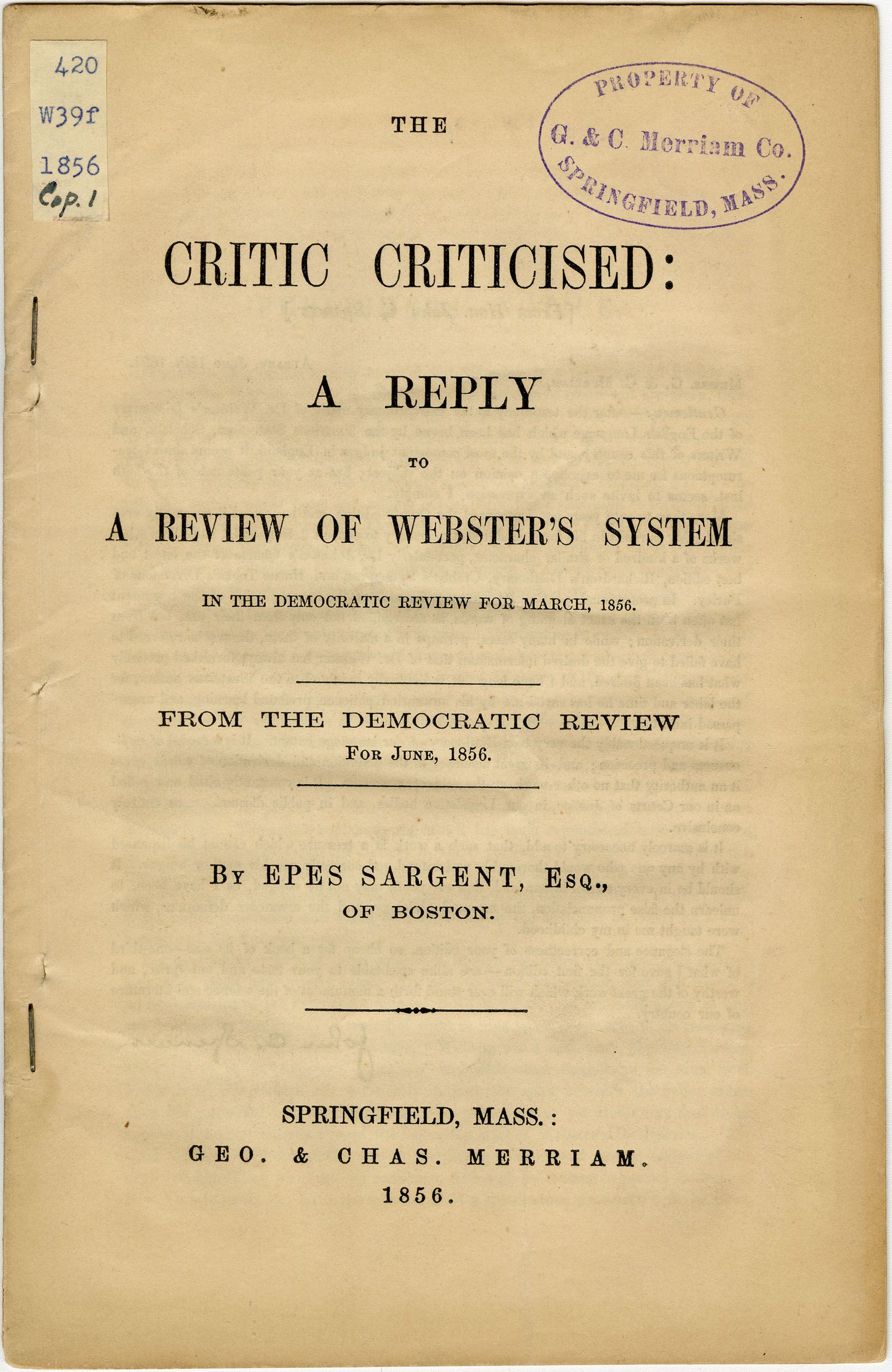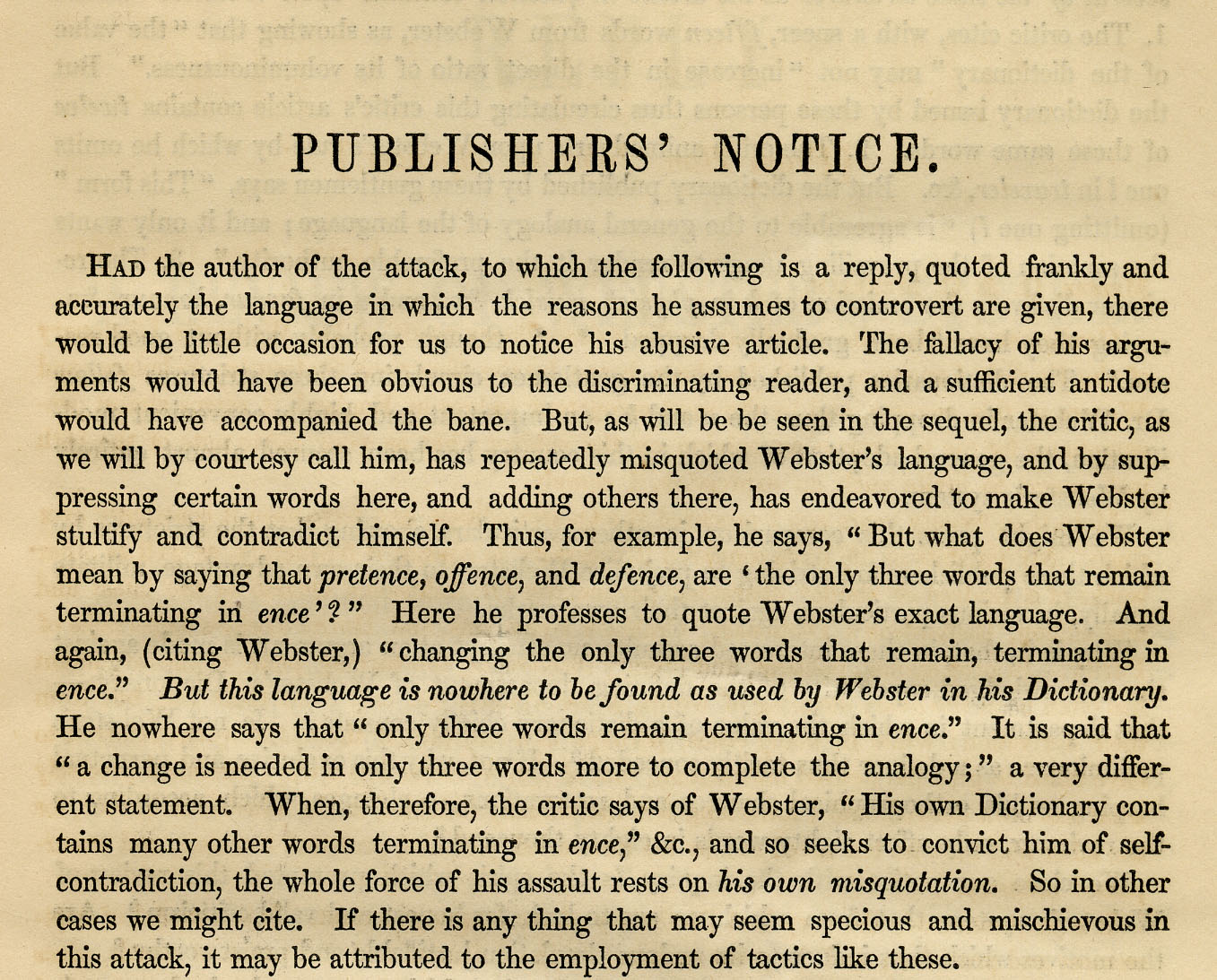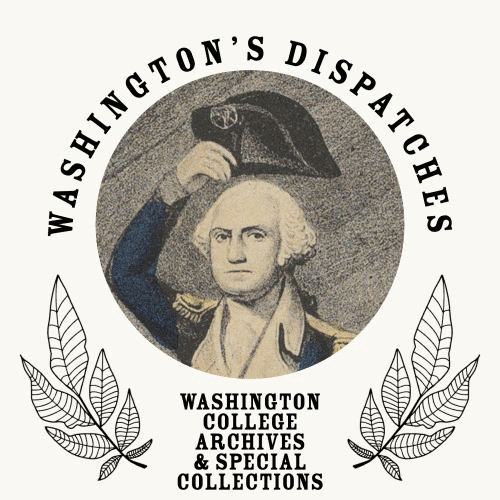19th Century Dictionary Wars

Dictionaries. Clifton Miller library has hundreds of them. There are dictionaries on law, costumes, and statistics. However, in the mid 19th century, the struggle was to become THE dictionary of the English language.
The 18th century had already established Samuel Johnson as the lexicographer with his Dictionary of the English Language. However, language changes, and even more so when there’s a divisive separation such
as the Revolutionary War and the birth of a new nation. Enter our hero, Noah Webster.
His mission was to create a dictionary for Americans.
And who would think that the humble compilation of definitions of words would cause such stirring emotions to lob published tracks across the Atlantic. But as we can see from the small pamphlet: “A summary summing of the charges, with their refutations, in attacks upon Noah Webster, his dictionaries, or his publishers, made by Joseph E. Worcester, Sherman Converse, and Jenks, Hickling, and Swan,” in the Rare Book Room, one of the many published pamphlets from the 19th century dictionary wars is thick with fiery quotes:
“Webster was a vain, weak, plodding Yankee, ambitious to be an American Johnson, without
one substantial qualification for the undertaking, and the American public have ignored
his pretensions; of scholars, and those who, in different parts of our country and
the world, employ our common language, that noble vehicle of thought which we call
English, there are not ten in a hundred who accept Webster’s Dictionary as a standard
of language; nay, the majority of them have in fact no acquaintance with it.”
Later, in the pamphlet the author states: “To oblige Mr. Converse, we have referred to the words courtesy and candor in the Dictionary, and find nothing under them to justify a man in bearing false witness against his neighbor.”
Fiery words indeed.
You can read this pamphlet online, and several other dictionaries from the 19th century in the Rare Book Room.